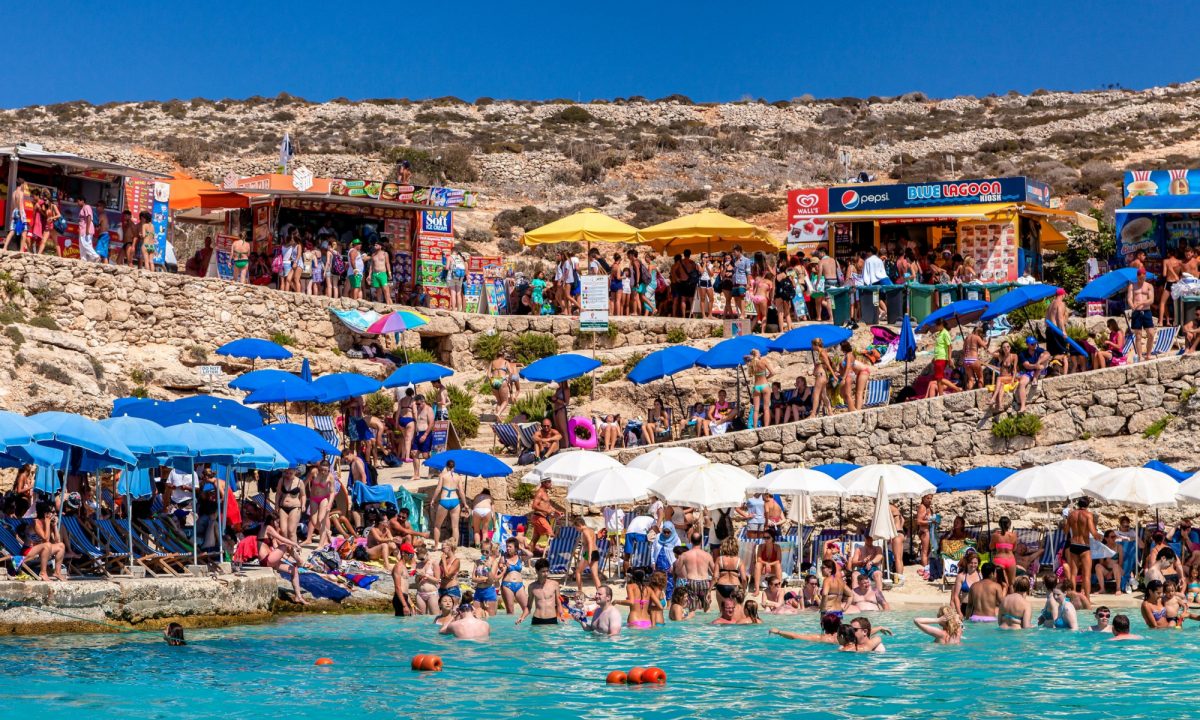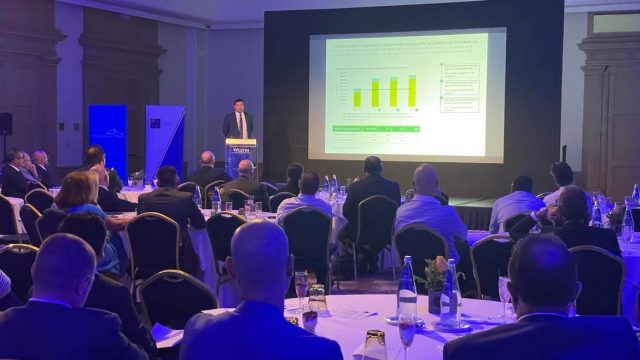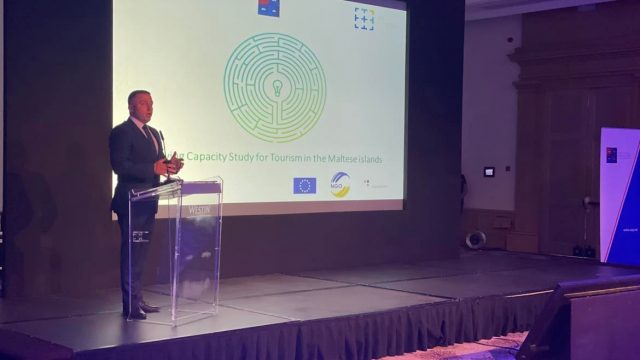
The Malta Hotels and Restaurants Association (MHRA) presents the Carrying Capacity Study for Tourism in the Maltese Islands by Deloitte Malta.
A study commissioned by the Malta Hotels and Restaurants Association (MHRA) and conducted by Deloitte Malta, clearly shows that once all bed stock that has regulatory approval comes on line, that together with the current bed stock will require 4.7 million arrivals staying an average of just under 7 nights each to achieve an 80 per cent occupancy throughout the year. This study was co-financed by the European Social Fund, Operational Programme II – Investing in human capital to create more opportunities and promote the wellbeing of society – 2014-2020. Additional financial support was received through the NGO Co-Financing Fund 2022 of the Malta Council for the Voluntary Sector.
The study was conducted by Deloitte Malta and was presented by Partners Raphael Alosio and Michael Zarb. Deloitte noted that the study shows that expected additions to the tourism bed stock, together with the prolonged air connectivity impacts due to various reasons and other demand-side factors, if left unchecked, augur a period of low occupancy and sector profitability, which in turn could further threaten Malta’s financial and economic stability when coupled with wide issues impacting all European markets.

Moreover, the study raised concerns about Malta’s capacity to cater for the level of tourism growth required to sustain the existing pipeline of tourism projects and approved developments, noting that to reach 2019 occupancy rates, expected supply side increases would require up to an 80% increase in arrivals over the next 5 years or so.
The Study showed that, already at 2019 volume levels, various quantitative and qualitative indicators were suggestive of an undesirable level of stress on key limiting factors that impact both the tourism experience offered in Malta as well as the quality-of-life of residents. Such limiting factors include the country’s broader infrastructure, particularly in regard to the sewage network in certain areas, broad environmental impacts concerning specific tourism hotspots as well as more indirect matters associated with the sector’s unsaturable thirst for expat workers and resulting urbanization pressures.
The study included a detailed literature review and data analysis of key tourism indicators. Furthermore, it featured interviews with several public and private sector stakeholders followed by several group workshops and follow-up consultations with specific entities. Contacted stakeholders included relevant Ministries and public authorities and agencies, local councils, as well as sectoral representative bodies and operators.
“A key factor for the sustainable development of tourism is the need to avoid complacency. This is an industry where one can never stop thinking about tomorrow’s opportunities and challenges. Thankfully, our country incorporates social partners like the MHRA that continuously spark a healthy and widespread tourism debate by encompassing government, direct stakeholders and the wider community,” outlined Minister for Tourism Clayton Bartolo.

Concluding the event, Mr Andrew Agius Muscat, CEO of MHRA, confirmed that this study comes at an opportune time in which a discussion is warranted on safeguarding the future of this-key sector for the Maltese economy.
We are faced with a very challenging economic climate in which operators are still feling the aftermath of the Covid-19 pandemic, coupled with major disruptions due to inflationary pressures and increases in fuel and other charges across the board which could impact the purchasing power of our main tourist markets and increase operational costs.
Therefore, we need to ensure that the industry remains sustainable in the medium to long term. This study clearly indicates the births necks and the areas that need addressing. In the end most of the decisions necessary are political decisions which only government is position to take and execute
The event was attended by all the key stakeholders, from private operators to key decision makers in the public sector.







